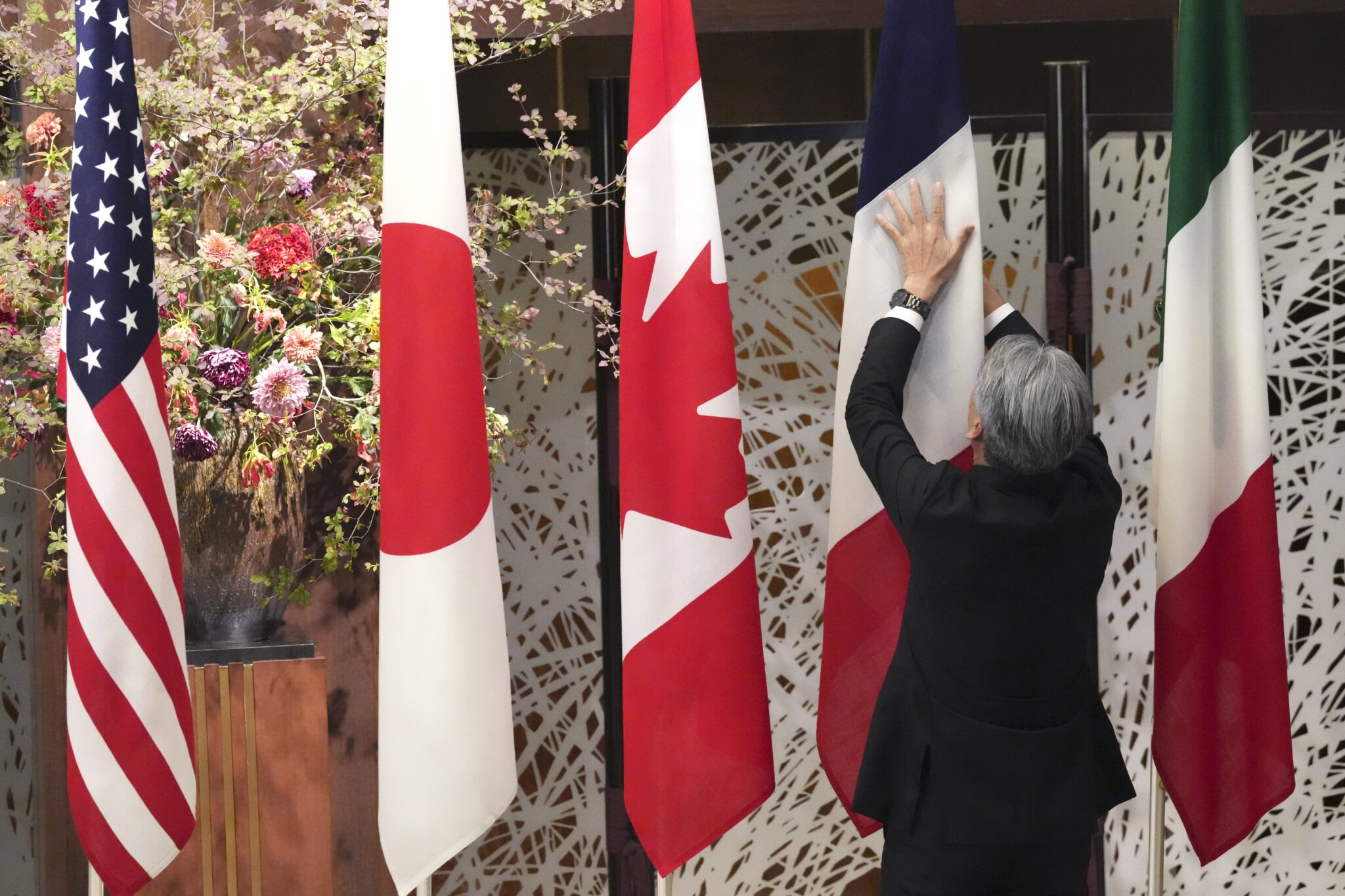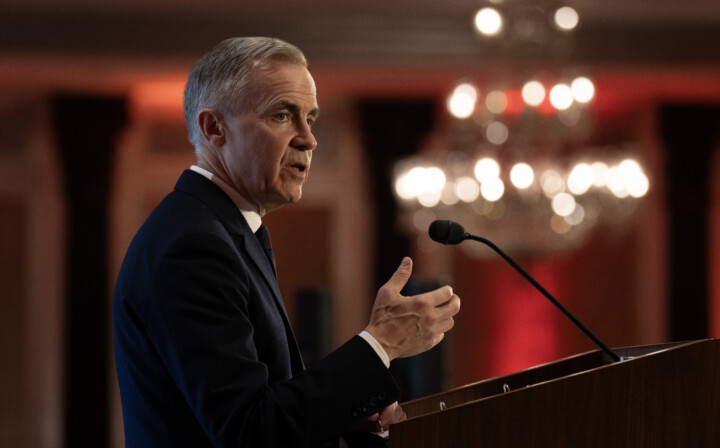
As the United States retreats from being a unipolar power, the prevailing global order is at a crossroads. For Canada, it’s time to start thinking about what comes next and what it means for Canadian policy. The Hub is running a new essay series to grapple with these seismic changes and offer a new clear-headed direction for Canadian foreign policy.
Canada must find its place in the world.
For many Canadians, it feels like we are lost at sea, trying to figure out who our friends and enemies are; who we’re supposed to trade with; and most importantly where we can exert enough influence to feel relevant in increasingly turbulent, insecure times.
Longstanding assumptions we once considered unquestionable are now unraveling. From free trade with the U.S. to post-Second World War alliances and the influence of the United Nations, little can be taken for granted anymore.
Geopolitical pacts are shifting faster than in a game of Risk and the global economic paradigm is far from stable. Our assumptions about international commerce—rooted for 200 years in the free-market principles championed by Adam Smith and David Ricardo—are now giving way to an era of heightened state intervention, industrial policy, and protectionism. In many ways, we are returning to an age of 17th-century mercantilism.
Consider the strategies employed by the leading nations of the mercantile era. Between the 16th and 18th centuries, European powers such as England, France, Spain, and the Netherlands treated corporate competition as an essential instrument of national policy. Governments actively supported and directed their major trading companies—most notably the British East India Company and the Dutch East India Company—granting them monopolies, military protection, and political backing to secure trade routes, control vital resources, and expand overseas influence.
In the late 19th and early 20th centuries, American oil companies (like the Standard Oil Co.) and European multinationals (like the Anglo-Persian Oil Company which is now BP) acted on behalf of their states to secure global oil reserves, in what was called “the Great Scramble.” Whatever the era, these corporations were not merely profit-driven enterprises, they functioned as tools of statecraft, ensuring wealth accumulation and economic dominance over rival nations.
Where do we see this behaviour repeating itself today?
China’s rapid economic expansion, driven by state-led investments and strategic global initiatives like the Belt and Road Initiative (BRI), has positioned the country as a dominant force in building geopolitical influence through trade, technology, and infrastructure building. Since joining the WTO in 2001, China has aggressively pursued growth by securing a foothold in developing nations through multibillion-dollar projects, while advancing their self-sufficiency in critical industries such as solar panels, batteries, EVs, semiconductors, and artificial intelligence to name a few. Companies like Huawei (telecommunications), BYD (electric vehicles), SMIC (semiconductors), CATL (batteries), and LONGi Green Energy (solar panels) serve as key instruments of China’s economic and geopolitical strategy, receiving state support to expand globally while securing critical supply chains and technological leadership in emerging industries. Their economic expansion over the past decade has been staggeringly fast: China has secured memorandums of understanding (MOUs) and loan agreements with over 149 countries worldwide, investing more than $1 trillion in BRI projects.
No wonder the Trump administration is touting MAGA. They recognized the Chinese neo-mercantilist behaviour during their first administration. Now, with a stronger mandate and greater organization, the Americans are reacting to an even more powerful global influence that is militarily aligned with the likes of Russia.
After a month of rapid-fire shock statements from the White House, we have woken up to the fact that talk about taking over the Panama Canal, Greenland, and Canada is more than mere dinnertime mutterings, taunts, or jokes. Indeed, the mercantilists’ playbook can be summarized in a checklist. See how many of these major traits you recognize in recent headlines whether it’s from China or our neighbours to the south.
- Acquisition or control of overseas wealth, largely in the form of valuable natural resources like critical minerals and hydrocarbons;
- Control of trade routes into and out of strategic regions;
- Heavy government investment in strategic, domestic industries (think AI, cybersecurity, quantum computing, EVs, nuclear fusion);
- High tariffs and trade restrictions under a deficit circumstance;
- The use of large, state-endorsed (not necessarily state-owned) companies to exert geopolitical influence—examples span everything from social media companies (think TikTok and X); to telecommunications (StarLink); to energy (from Western multinationals expanding LNG at the expense of Russia’s Gazprom).
The re-emergence of a mercantilist if not imperialist mindset has profound implications for Canada’s search for identity and relevance. Economically, the competition for global wealth is being shaped by nations leveraging their largest corporations as instruments of geo-economic influence, rather than being solely driven by multinational companies competing for profit. In other words, business rivalry is now more a contest between nations than a purely corporate struggle for international market share.
Whether it’s mercantilism, imperialism, or other “isms,” the nature of today’s global economic paradigm can be debated over a glass of wine and a few good books on history. But one thing is clear: the world’s major powers are actively staking claims. They aren’t just doing it through projecting military might but through strategic investments, economic muscle, and the threat of outright economic warfare.
Canada’s strongest industries are its most crucial strategic assets in protecting sovereignty in a world where planting flags—economically and militarily—is back in vogue. This requires a deliberate effort to cultivate and empower Canadian corporate champions—firms capable of exporting widely and competing on the global stage. Countries that remain relevant in the future will be those that leverage their industries as instruments of statecraft, especially those that are highly prized today like energy and critical minerals.
In short, if Canada is serious about securing its sovereignty in the new world order, its corporate sector cannot be separated from its national strategy. Just as other nations have intentionally nurtured industrial giants to project influence, so too must Canada. We must change the way this country views its strategic industries.
Over the past 20 years, vital industries representing oil, natural gas, minerals, and their associated infrastructure like pipelines have often been maligned, if not outright reviled in domestic policy debates. Yet these companies should be considered necessary, strategic actors in a global theatre of economic conflict. Whether we like it or not, that’s how relevance is established in our new mercantile world.










